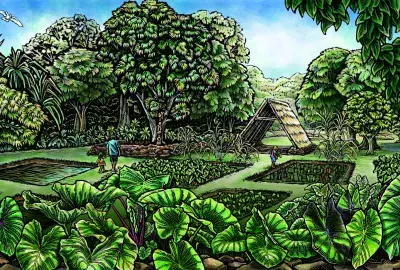Error message

EWC Insights: Agrarian Change and Armed Conflict in Myanmar
by Dr. Kevin M. Woods
Environmental and agrarian change in rural ethnic minority villages in Myanmar is found to be primarily driven and understood by fluid armed conflict dynamics and other conflict-related variables over the past three decades. Multiple field research teams conducted hundreds of interviews with minority farmers in tens of villages in the north (Kachin State) and southeast (Karen State and Tanintharyi Region) between 2016-2020, which was then paired with remotely sensed township deforestation rates from 2000-2020. The relationship of forests to armed conflict is shown to change over time and differ from village to village, reflecting the volatile localized conflict dynamics and its many related factors. No direct correlation is found between deforestation rates and whether there is a ceasefire in place when compared across conflict-affected regions in Myanmar. Other macro- and more micro-scale forces and conditions are found to play a larger determining role in deforestation and land use transitions than ceasefires alone, such as the ways in which armed actors influence and act upon political authority, logging pressures, land tenure insecurity, the transition to industrial agriculture, and infrastructure development. This study’s findings on agrarian change in ethnic armed conflict territories in Myanmar can also inform the types and modes of environmental change that we can expect to start to take shape in the country since the military coup on February 1, 2021 and the return to authoritarian military rule.
Dr. Kevin M. Woods is a political ecologist and human geographer who examines agrarian change and environmental conservation in relation to political conflict and violence in the Mekong region, especially in Myanmar. He is an Adjunct Sr. Fellow at the EWC in Honolulu, and an Adjunct Assoc. Prof. at UH Mānoa, Dept. of Geography and Environment. His academic publications on the politics of violence and contested state building that emanate from economic concessions, land and resource governance reforms, and nature conservation have appeared in the Journal of Peasant Studies, World Development, Political Geography, and Human Ecology, among others. He has a forthcoming co-edited book with Philip Hirsh et al. on the politics of turning land into capital in the Mekong region with the University of Washington Press. Dr. Woods’ policy engagements try to draw attention to and address how agricultural and resource commodity production can inadvertently contribute to armed conflict and human rights abuses, with regular associated NGO publications and outreach to media and the diplomatic community.
EWC Insights: Agrarian Change and Armed Conflict in Myanmar
by Dr. Kevin M. Woods
Environmental and agrarian change in rural ethnic minority villages in Myanmar is found to be primarily driven and understood by fluid armed conflict dynamics and other conflict-related variables over the past three decades. Multiple field research teams conducted hundreds of interviews with minority farmers in tens of villages in the north (Kachin State) and southeast (Karen State and Tanintharyi Region) between 2016-2020, which was then paired with remotely sensed township deforestation rates from 2000-2020. The relationship of forests to armed conflict is shown to change over time and differ from village to village, reflecting the volatile localized conflict dynamics and its many related factors. No direct correlation is found between deforestation rates and whether there is a ceasefire in place when compared across conflict-affected regions in Myanmar. Other macro- and more micro-scale forces and conditions are found to play a larger determining role in deforestation and land use transitions than ceasefires alone, such as the ways in which armed actors influence and act upon political authority, logging pressures, land tenure insecurity, the transition to industrial agriculture, and infrastructure development. This study’s findings on agrarian change in ethnic armed conflict territories in Myanmar can also inform the types and modes of environmental change that we can expect to start to take shape in the country since the military coup on February 1, 2021 and the return to authoritarian military rule.
Dr. Kevin M. Woods is a political ecologist and human geographer who examines agrarian change and environmental conservation in relation to political conflict and violence in the Mekong region, especially in Myanmar. He is an Adjunct Sr. Fellow at the EWC in Honolulu, and an Adjunct Assoc. Prof. at UH Mānoa, Dept. of Geography and Environment. His academic publications on the politics of violence and contested state building that emanate from economic concessions, land and resource governance reforms, and nature conservation have appeared in the Journal of Peasant Studies, World Development, Political Geography, and Human Ecology, among others. He has a forthcoming co-edited book with Philip Hirsh et al. on the politics of turning land into capital in the Mekong region with the University of Washington Press. Dr. Woods’ policy engagements try to draw attention to and address how agricultural and resource commodity production can inadvertently contribute to armed conflict and human rights abuses, with regular associated NGO publications and outreach to media and the diplomatic community.









